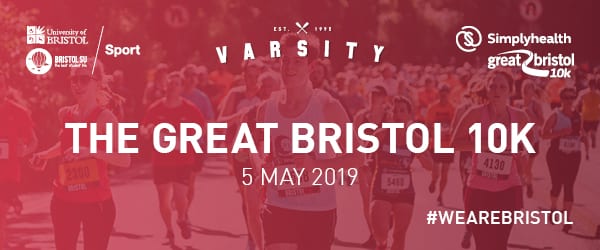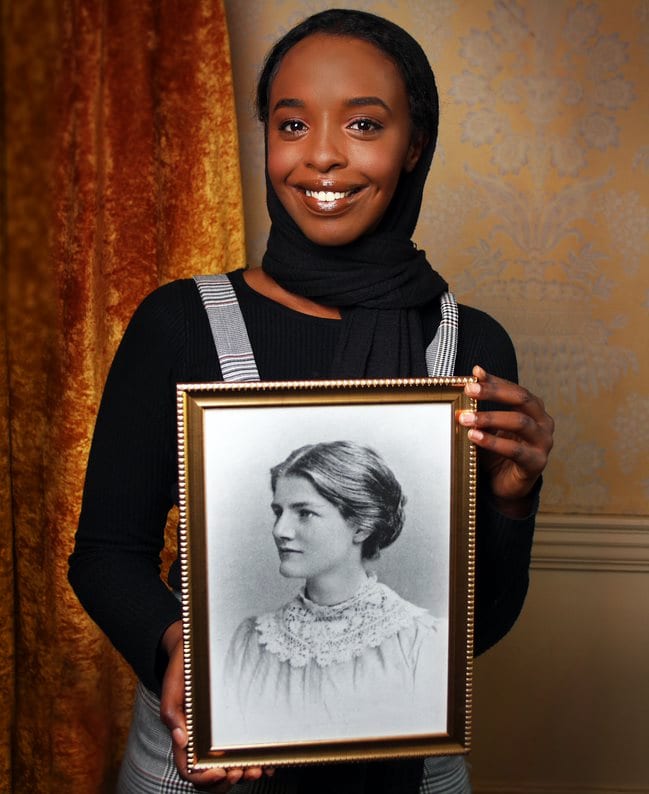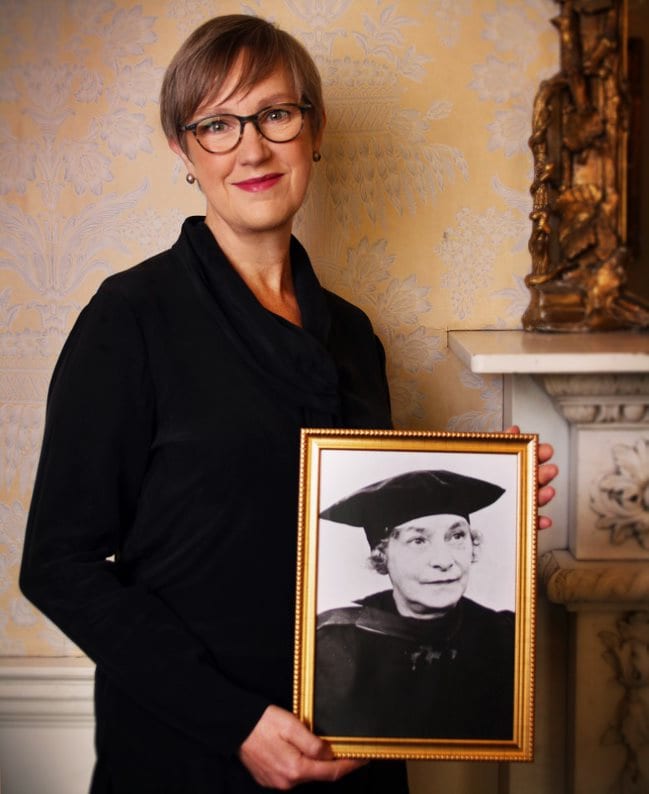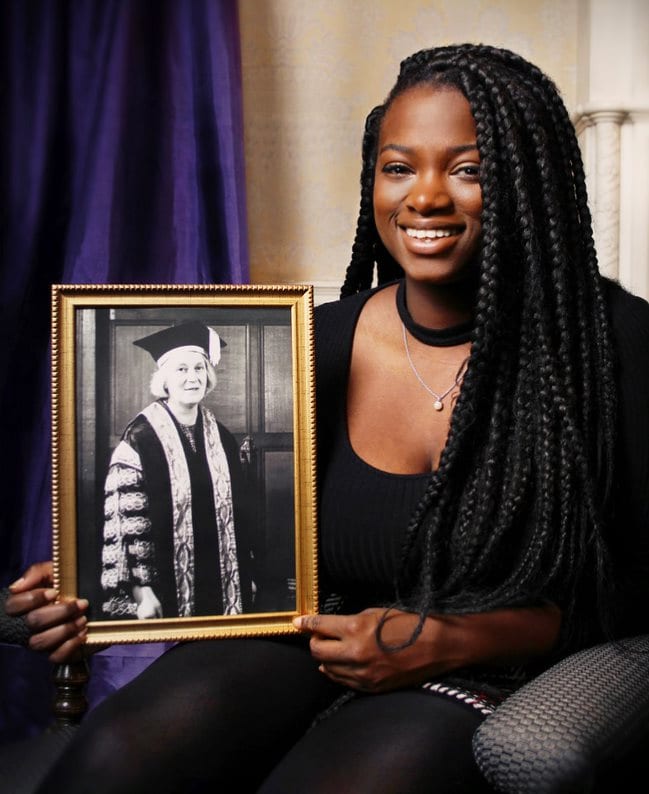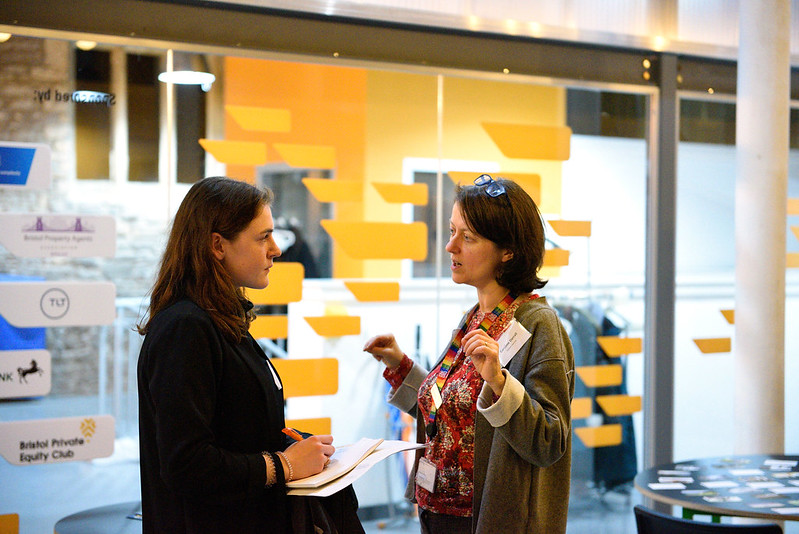Seven Bristol alumni, staff and students are running the 2019 London Marathon in support of Healthy Minds, a physical activity programme at the University which taps into the benefits of exercise to support students affected by mental ill health.
Congratulations and thank you to our 2019 London Marathon team! We wish them all good luck with their training and hope that they have a fantastic day on Sunday 28 April 2019.
Christiaan J. Knaup
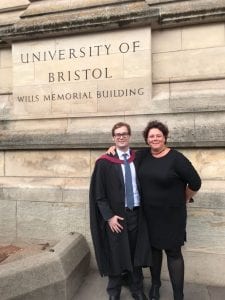 ‘Your student days are the best years of your life. Certainly now that I’m working, I realise just how much freedom I had to explore, think and question everything around me. I spend a year abroad in Singapore, went to the European Championships with the debating society and watched multiple elections in the Student Union. More importantly, I met my best friends.
‘Your student days are the best years of your life. Certainly now that I’m working, I realise just how much freedom I had to explore, think and question everything around me. I spend a year abroad in Singapore, went to the European Championships with the debating society and watched multiple elections in the Student Union. More importantly, I met my best friends.
On the other side, my student days mark a time when I lost both my parents to cancer and a stroke. While it has been tough, I have been fortunate enough to draw on my friends and family for support and this is an opportunity that is not granted to everyone. More importantly, my grief made me aware of the difficulties in mental health. How can one just snap out of it? How can all the things you do make you feel better? Eating healthy and exercising are things that are incredibly hard to do.
Fortunately, through the University of Bristol, I have secured a spot in the 2019 London Marathon. This marathon represents more than just a run to me. Running 42.195km is a real challenge and an opportunity to give back to the community through fundraising. The university has been incredibly flexible and supportive of students who are suffering from mental health issues through things such as Healthy Minds initiative. It aims to support students who are undergoing mental turmoil, no matter what the reason. It promotes and supports mental-wellbeing via encouraging exercise and mentoring. Exercise has certainly helped me. To me it is not just about the dopamines that are released, but also the bonds that are forged between teammates.’
Chloe Parsons
‘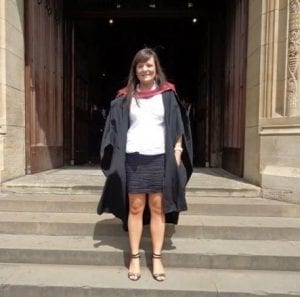 I graduated from the University of Bristol with my accounting and finance degree in 2014. Since then, I have both worked and studied as an accountant, recently becoming a Chartered Accountant at a fantastic accountancy firm in the city.
I graduated from the University of Bristol with my accounting and finance degree in 2014. Since then, I have both worked and studied as an accountant, recently becoming a Chartered Accountant at a fantastic accountancy firm in the city.
I have lived, studied and worked in Bristol my entire life. As I look out of my office, The Wills Memorial Building is in site and reminds me of my graduation.
Standing on the start line of the London Marathon as a proud ambassador and alumni of the University of Bristol raising money for Healthy Minds will mean everything to me. I have never run a marathon before and I cannot wait to take on the challenge!
The training starts here! If any small donations can be made to support me in my fundraising it would be extremely appreciated and go a long way in helping me reach my target!’
Jack Bicknell
‘I’m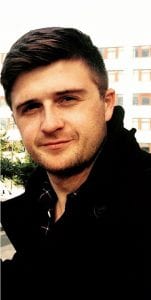 Jack Bicknell, I studied Physics and graduated back in 2013. Since then I’ve been a science teacher with Teach First and now work at PwC Consulting. I’ve wanted to do the London Marathon for a while now so when I saw there was an opportunity to run for UoB Healthy Minds I jumped straight in! When I was at uni I used the Student Councelling Services and they really helped me get over some things I was dealing with. Exercise was, and still is, a massive tool I used back then to get out of a rut and it’s still the first thing I think of when I’m having a bad day. Bristol’s Healthy Minds is a fantastic cause I really hope that our fund-raising helps some students get back on track.’
Jack Bicknell, I studied Physics and graduated back in 2013. Since then I’ve been a science teacher with Teach First and now work at PwC Consulting. I’ve wanted to do the London Marathon for a while now so when I saw there was an opportunity to run for UoB Healthy Minds I jumped straight in! When I was at uni I used the Student Councelling Services and they really helped me get over some things I was dealing with. Exercise was, and still is, a massive tool I used back then to get out of a rut and it’s still the first thing I think of when I’m having a bad day. Bristol’s Healthy Minds is a fantastic cause I really hope that our fund-raising helps some students get back on track.’
Verity Saunders
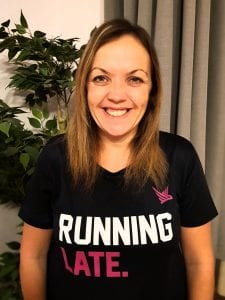
‘I started working at the university in April this year as Head of Projects in IT Services. I play netball and am a keen runner taking part in a number of 10k and half marathons. I live in Bristol with my husband Rich and have 3 children Tom, Scarlett and Amber. The benefits of sport have played a huge role in my life when I was at university and especially in the early days of motherhood providing me with the tools, mindset and headspace to deal with everyday challenges. I have never ran a marathon before and this will be the biggest personal challenge I have ever undertaken.’
Marissa Guiang
‘My n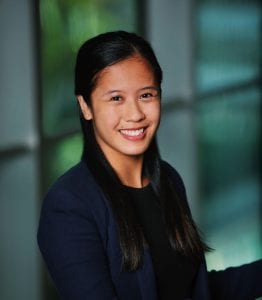 ame is Marissa and I was born and raised in Chicago, Illinois. I was a visiting student at Bristol in 2014, from Cornell University. At Bristol, I took classes in Politics, Sociology, and International Film. I graduated from Cornell in 2015 and moved to New York City to work at BlackRock.
ame is Marissa and I was born and raised in Chicago, Illinois. I was a visiting student at Bristol in 2014, from Cornell University. At Bristol, I took classes in Politics, Sociology, and International Film. I graduated from Cornell in 2015 and moved to New York City to work at BlackRock.
The London Marathon will be my second marathon, after completing the New York City Marathon this past November. I am running to raise money for Bristol’s Healthy Minds program to help the university with its efforts to provide more mental health resources to its students. When I was a visiting student, the university provided me with support that made an otherwise difficult study abroad experience much more pleasant and memorable. I want to help sustain and expand the Healthy Minds program so that all students can get the support they need to succeed and enjoy their time at Bristol.’
Sam Collier
Sam is studying for a PhD in Sustainable Futures at the University of Bristol, having previously completed an MRes at the university. His motivation for running the London Marathon stems from his own experience with mental health over the past year. He struggled with anxiety and depression during the first year of his PhD, but has found running to be an effective way to manage this. It has become his go-to strategy; a way of channelling the suppressed energy of his anxiety into something worthwhile and positive. By fundraising for Healthy Minds, he hopes to broaden awareness of the programme and what it can offer to students, and to encourage others to try exercise for its psychological benefits.
Grace Kendrick
Grace is currently studying Law at the University of Bristol.
To support the fundraising efforts of the team as a whole, please visit their JustGiving page.
 Norah Fry, champion for people with learning disabilities, with Beth Richards, researcher in the Norah Fry Centre for Disability Studies
Norah Fry, champion for people with learning disabilities, with Beth Richards, researcher in the Norah Fry Centre for Disability Studies
